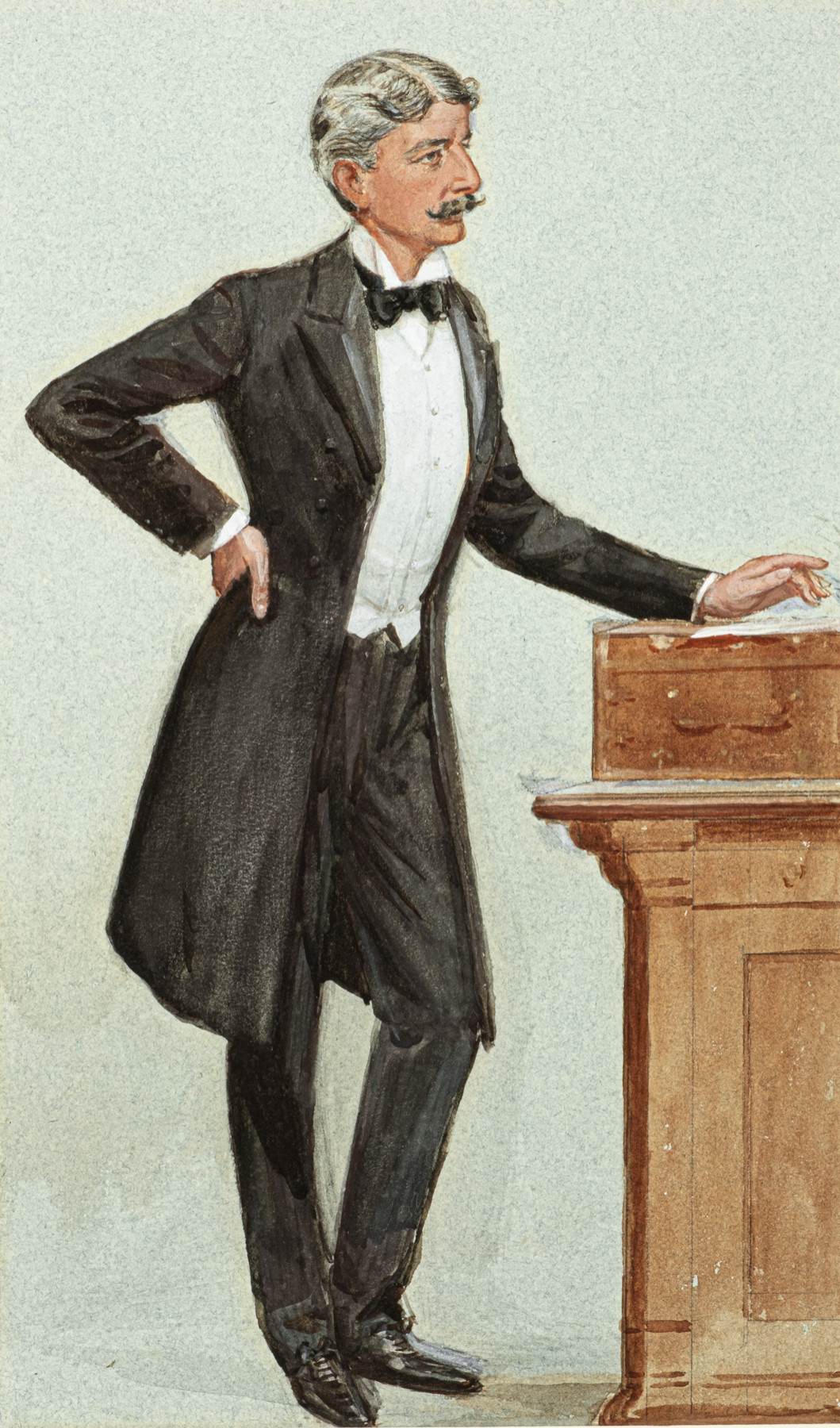
(click image to enlarge)
Sir George Wyndham (1863-1913) served in the army as a young man before entering the House of Commons as MP for Dover in 1889, a seat he would hold until his death in 1913. Wyndham was a central figure in Souls, an aristocratic group formed in 1887 in reaction to the prince of Wales's Marlborough House set. Also aspiring to be an author and artist, he published a number of works, such as The Poems of Shakespeare (1898), Ronsard and La Pléiade (1906) and Essays in Romantic Literature, published posthumously in 1919. In 1898 he was appointed as under-secretary at the War Office and in 1900, at the age of thirty-seven, was named chief secretary for Ireland.
“‘Vonce round his vaist twice round a hearwig’s,’ said Mr. Punch in the early forties of a Statesman of the day. ‘Agag’ has many advantages. Well-born seven-and-thirty years ago, and well-married at twenty-four, he was sent to Eton (where they taught him the art of polite letter-writing); was forwarded to Sandhurst; served for three years in the Coldstream Guards and fitted himself for War by smelling powder at Saukim, became a Justice of the Peace for Cheshire and a Major of Yeomanry, went into Parliament for Dover, and has improved himself ever since. As Private Secretary to Mr. Arthur Balfour he combined the writing of official correspondence concerning the Plan of Campaign and the rest of it with the direction (in his spare moments) of the London, Chatham, and Dover Railway. In the one capacity he wrote letters that goaded the Bhoys to madness, being models of light-hearted yet perfectly correct literature; in the other Office he certainly did not impede the progress of any of the company's trains. Then he found apotheosis on the Front Bench of the House of Commons, where he gracefully reclines (sometimes with his boots on the table and his hands in his pockets) between Warrior Williams (on his left) and Jesse Collings (on his right). He is a Member of the Society of Souls; but as Under-Secretary for War he did much to save the bacon of the Government when Parliament met in February last, and it is beyond doubt that his manners and his appearance and his frock-coats have caught the ear of the House. He has indeed made a big reputation for himself; and as he has already learned a thing or two about the Army, and as, though he has caught the infection of the Official Optimist, he admits that the best of all possible Departments does need a spring cleaning, he is really full of promise, and pretty certain to remain the representative of Dover. For he is a very clever fellow who is quite full of possibilities.
He is not only praised of ‘Tay Pay,’ and admired of The Daily News; but having ‘arrived,’ he may be depended upon to go far.”